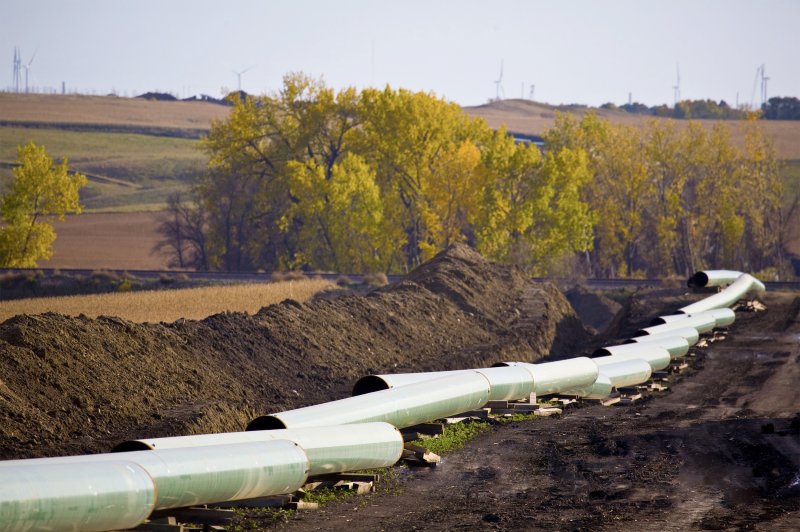TransCanada says Keystone XL still an effective and safe solution to bring economic stimulus to North America. Photo courtesy TransCanada
CALGARY, Alberta, Oct. 23 (UPI) -- The planned Keystone XL oil pipeline best fits the Liberal agenda for mobilizing Canadian resources in a way that benefits North America, TransCanada said.
The planned Keystone XL would transport oil across the Canadian border to refineries along the southern U.S. coast. Supporters argue it would bring economic stimulus to North America, while detractors say a heavier form of Canadian crude oil called diluted bitumen could spoil the environment.
Stephen Harper, whose Conservative Party was defeated in Monday's national election, made the pipeline one of his top priorities during his administration. He's argued the project is among the better alternatives, both economically and environmentally, to transport oil. An increase in North American oil production is more than the existing network of pipelines can handle, forcing many in the industry to use rail.
The project has been a strain on U.S.-Canadian relations, with Washington signaling it would veto any effort to get around the slow approval process. Justin Trudeau, ushered to the Canadian leadership with Monday's vote, has said he supports Canada's energy-based economy, but would take a different position than Harper.
Davis Sheremata, a spokesman for TransCanada, said in response to email questions the mega-pipeline project represents one of the best examples of what's needed regionally.
"We can't think of a project that better embodies what has been one of the closest energy trading partnerships in the world," he said. "Keystone XL is a project built with the hands of U.S. and Canadian workers that will deliver North American oil for use in the United States, making Americans less reliant on imports from overseas countries that don't share their values."
Low oil prices mean job layoffs for parts of the U.S. and Canadian sectors that depend on energy. Statistics Canada reports a national average unemployment rate for September at 7.1 percent, relatively unchanged for four straight months.
TransCanada, for its part, said falling oil prices are having a "profound impact" on its customers. In September, the company said it would cut about 20 percent of its top-level executive positions and this week announced it would cut director-level positions by 20 percent.
"TransCanada is introducing changes to our structure to ensure we remain competitive and deliver shareholder value as we continue to grow and build new energy infrastructure in a safe and responsible manner," spokesman James Millar said.
Instead of passing the buck to its customers in the industry, Millar said, the company is sharing the pain of the impact of low oil prices.
Canada is the No. 1 oil exporter to the United States. The four-week average for U.S. crude oil imports is down, however, by 2.7 percent from the same period last year. Total Canadian imports for the week ending Oct. 16 were down 2.8 percent from the previous week.















